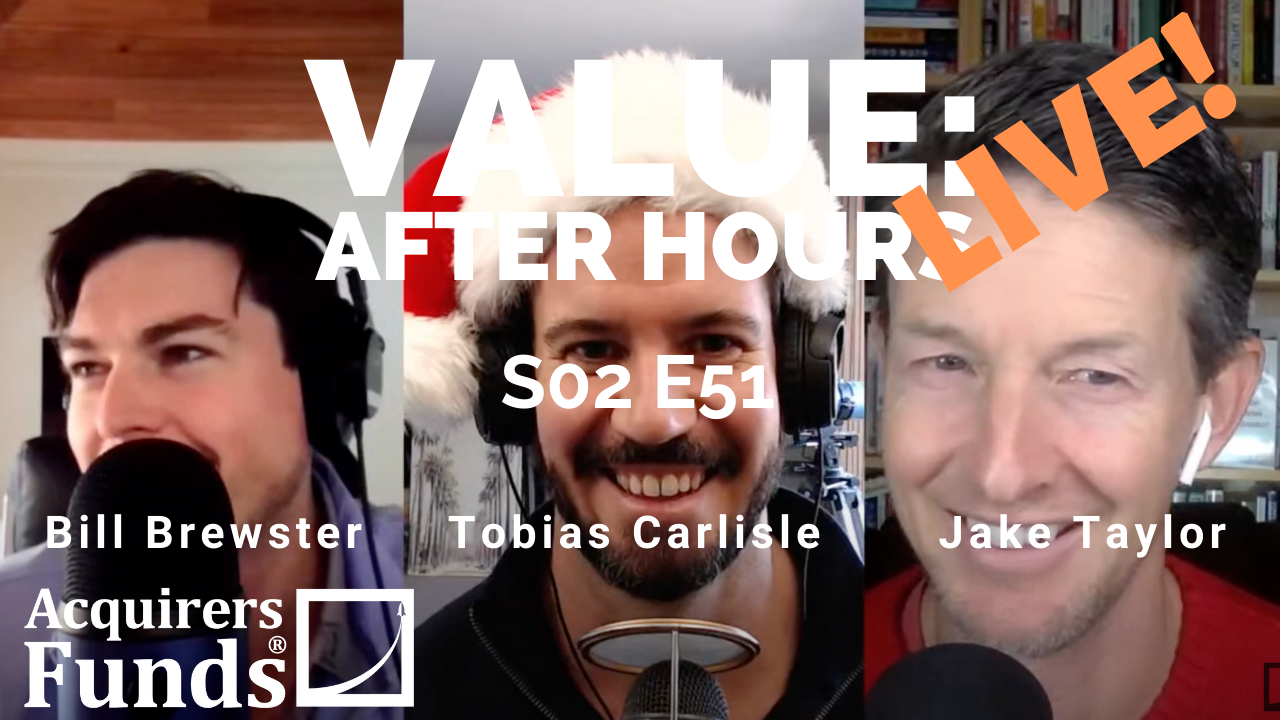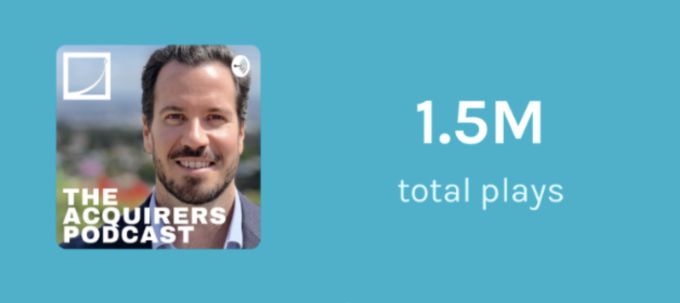During their recent episode of the VALUE: After Hours Podcast, Taylor, Brewster, and Carlisle discussed Baby Carrots-Zugzwang. Here’s an excerpt from the episode:
Jake: With the popularity of the Queen’s Gambit and chess apparently is all the rage right now, I thought it’d be fun to take a concept out of there that I actually learned about relatively recently, and then– not through chess, and then see if I can torture an analogy out of it for us, as I am want to do.
Tobias: That’s what we do.
Jake: That’s what we do. Toby, you probably already know what this is given that you’re like a chess God.
Tobias: No, I’m a terrible chess– I’m like a [unintelligible [00:17:25] 1400 to 1600, that’s my rating, just so you can all have a good giggle. You can come and play me on the chess machine and see how bad I really am.
Jake: [chuckles] There’s this concept, and I’m sure I’m saying this wrong, but something like Zugzwang. It’s spelled Z-U-G-Z-W-A-N-G.
Tobias: I don’t know.
Jake: All right, good. It’s actually German for compulsion to move. The concept is that there’s oftentimes in the game, especially towards the end game where because you have to move, you’re in Zugzwang, or whatever it is. It means that you’re putting yourself in a disadvantageous position because you have to move, and one of your moves are good moves, and you know it. When markets are frothy like they are right now I think is relatively safe thing to say, although apparently, no one cares, you have to ask yourself, “Am I actually forced to move right now? Am I in Zugzwang?” or, however the hell they say it in German.
I would say that for many professional investors, the answer for them is yes, because especially if they have shorter-term-oriented clients, they want those easy returns when they’re available. Then, they don’t want the losses when those come around. They are in a place where they have a compulsion to move. They can’t watch everyone else making this easy money. They have to participate. If the song is playing, they’ve got to be dancing. Well, you kind of invert that, who would you say, is the best at keeping themselves out of the compulsion to move?
Tobias: Warren Buffett.
Jake: I think that’s a good answer.
Bill: Yeah.
Jake: Right. Isn’t every single one of his moves about the future chess game were not being in a place where he has a compulsion to move? You could almost say he’s optimized for flexibility to move by the avoidance of being put into the compulsion to move. I find that to be a really interesting inversion. If you’re not a professional and you don’t have outside capital that’s demanding the easy money, this is where your real advantage lies, is that you can afford to not put yourself in places where you have a compulsion to move, you don’t have to do what everyone else is doing to avoid the career risk.
Tobias: I love that concept. You’ll find it appearing in my next book, as soon as I learn how to spell it.
Jake: [laughs] Yeah. I’m going to expect some credits at the end of that book.
Tobias: You can get credit. I’ve described it in a different way in the book, but I understand the concept. I’ve been in that position many, many times. That’s not uncommon as a chess player to be–
Jake: Like every game. [chuckles]
Tobias: I win about half of them, but just against weaker opponents.
Jake: By the way, I don’t need any credit because this concept’s like 400 years old.
Tobias: I try to give credit where it’s due. I think you’re doing counter for real in the market. Lots of people are considering now, do you sell? Probably you can hold on to it next year. You’ve got lots of gains, do you sell this year and incur short-term capital gains tax payable next year? Or, do you hold for long-term capital gains?
Jake: Or long-term losses.
Tobias: For theoretical long-term capital gains next year. You got to get through, I guess you got to get through the March 2021 minefield to collect on them and then you push it out. The time value of money question that is very material. That’s a really difficult decision to make. I wouldn’t want to be in a position having to make that, that Zugzwang in investing.
Jake: Yeah, you avoided that by avoiding all those gains, that was well played.
Tobias: Yeah. Just bought a whole lot of value stocks when the market fell over.
Jake: Stepped around that landmine. [laughs]
Tobias: Very Buffett like sort of head to the future. [laughs]
Jake: You’re playing the long game. Congrats.
Tobias: Really, really long game. Just waiting for value to turn, that’s Zugzwang all by itself.
Jake: Yeah. Bill?
Bill: I don’t know. Mike Bartlett wants me to shut up, so I did. Also, I don’t like you either, Mike. I would say that the other thing is just because of that, like you don’t have to swing, you can also choose to swing in spots. Ryan Reeves is smart guy. That guy’s not just buying Peloton on a Momo thing. There are assets that you may see a spot in, but I agree with you. I wouldn’t avoid something because it’s optically expensive. I wouldn’t go into something because it’s optically cheap. I think you’ve got to be super choosy right now though because right now is not the time that people are underwriting really bearish skewed underwriting assumptions. So, if it’s going to outperform to the upside, I think you’ve got to have a pretty good reason it’s going to do it.
Jake: Yeah, there’s a lot of upside baked into the cake already in these prices.
Tobias: Yeah, the concept of Zugzwang, are we encountering it again now? There’s some stuff out there that– few of those FAANG stocks, you can get– if you can get comfortable with the growth, which is the hard part. But if you can get comfortable with it– I think Google, Facebook probably, even though I don’t particularly like Facebook, but Google, maybe Microsoft, they’re in that range where there is going to be some positive return. I don’t know where it gets over your hurdle. What other options are there in this market?
You can find out more about the VALUE: After Hours Podcast here – VALUE: After Hours Podcast. You can also listen to the podcast on your favorite podcast platforms here:
For all the latest news and podcasts, join our free newsletter here.
Don’t forget to check out our FREE Large Cap 1000 – Stock Screener, here at The Acquirer’s Multiple:




